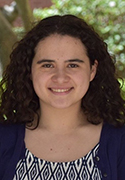Our trainees review webinars in their given fields and share abstracts to help colleagues outside their discipline make an informed choice about watching them. As our program bridges diverse disciplines, these abstracts are beneficial for our own group in helping one another gain key knowledge in each other’s fields. We are happy to share these here for anyone else who may find them helpful.
Phase Appropriate LC-MS Strategy for the Rapid Characterization of Bispecific Antibodies
Speakers:
Lieza Danan Leon (Co-Founder and CEO, LiVeritas BioSciences, Inc.)
Na Pi Parra (Co-Founder and EVP of Marketing and Project Management, LiVeritas BioSciences, Inc.)
Date: April 6, 2022, 2 P.M. EDT
Hosting Organizations: Bruker, LiVeritas, and LCGC
Watch on the Bruker, LiVeritas, and LCGC website (requires completion of a form)>>
Antibodies are used extensively in medical research and as drugs for many different disorders. They have lots of potential for future drugs and treatments as well, and they are a valuable tool in both biomedical research as well as in clinical applications. In this webinar, learn how some of the most important technologies for studying proteins can be used for characterizing antibodies. These techniques, liquid chromatography (LC) and mass spectrometry (MS), which are used together in the methods described in this webinar, allow characterization of proteins via a label-free (and either targeted or untargeted) method known as proteomics.
In this webinar, the speakers focus on bispecific antibodies: these are particularly interesting for their ability to bind to two different epitopes, and they can be very useful both in research and clinical applications. Therefore, it’s very important to develop new techniques like the one described here in order to characterize and to be able to use these valuable tools.
They show some of their LC-MS data for these interesting types of antibodies, in order to demonstrate their technique which allows the analysis of these. This is a useful video because instead of focusing heavily on the MS methods used, they focus on the more broad field of drug development while explaining how MS can be an important part of this. Therefore, I think this would be helpful to watch for an audience that may want to explore new methods for their research and are unfamiliar with MS, or those who are wondering how MS can be useful for or for answering particular questions including in drug development.
This webinar is unique because they briefly describe a few “case studies” for how LC-MS can be used to solve a few different research problems. As they show, it can be used to identify unknown proteins, look at their glycosylation profiles and other post-translational modifications, and solve many other types of problems involving proteins. I think this webinar gives a great introduction to the many ways in which this technique can be used.
I also found it interesting that these two researchers worked in industry and then as they describe in the beginning, they started a company where they solve problems for other labs using their expertise in LC-MS, which may be interesting as an example of a future career path for those planning to continue research after graduate school.


